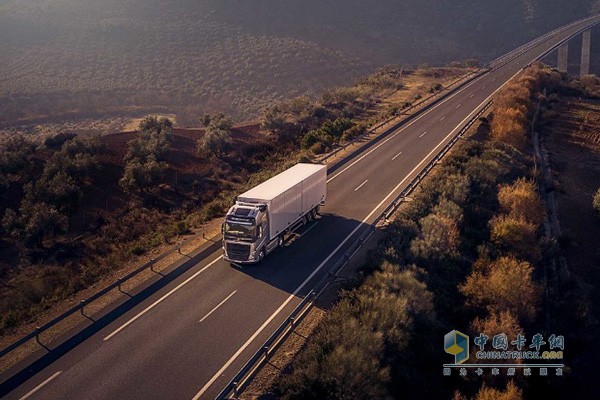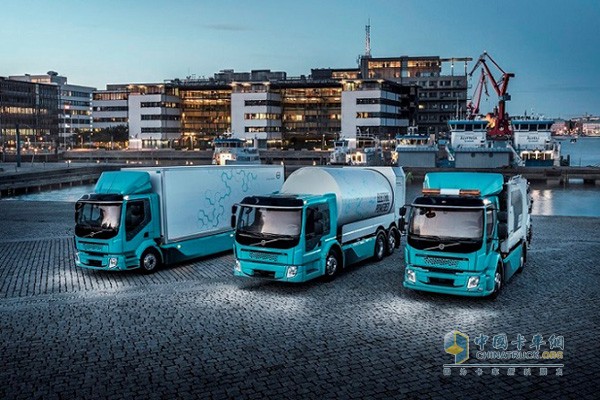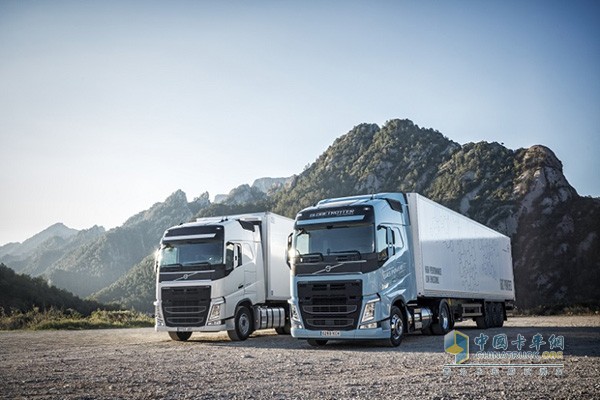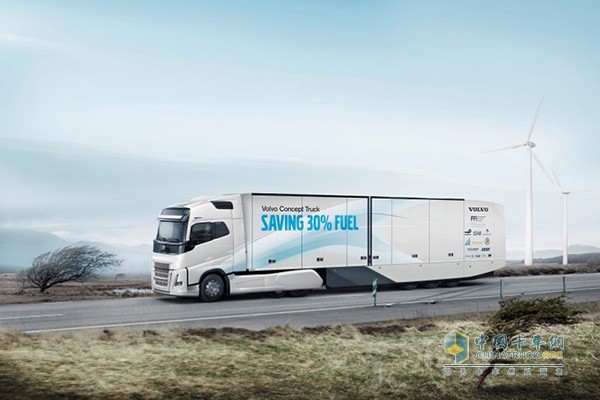With the new round of scientific and technological revolution and industrial reform, the new energy transportation industry is entering a new stage of accelerated development. However, compared with passenger cars, the zero emissions of medium and heavy vehicles are subject to discussion in terms of technical paths, operational practices, and supporting policy design. At the first World New Energy Vehicle Conference concluded at Boao, Hainan, the development of new energy for medium and heavy-duty vehicles has become a major focus of experts at home and abroad.
As the worlds leading truck brand, Volvo Trucks regards environmental protection as one of its core values. Since the 1990s, Volvo Trucks has continued to improve internal combustion engine technology, improve vehicle fuel efficiency and emissions performance, and actively deploy new energy fields. Today, while reducing the fuel consumption and carbon dioxide emissions of conventional diesel vehicles by nearly 20% [1], Volvo Trucks has also successfully launched a number of new energy vehicles such as hybrid trucks, natural gas trucks and pure electric trucks. .

Volvo Trucks Continue to Improve Fuel Efficiency and Emissions Performance of Traditional Models
Hu Ping, vice president of sales for Volvo Trucks China, said: “There is no single fuel to meet all the needs of the future market. Volvo trucks are also increasing the number of natural gas trucks and other alternative fuels and hybrids. We will continue to promote the application of new energy in commercial transportation and create a future zero-emission and sustainable commercial transportation landscape."
Plus electricized, the second pure electric product is on sale soon
Relying on the Volvo Groups many years of professional accumulation in the field of electrified transportation solutions, Volvo Trucks has launched two pure electric products - the first pure electric Volvo FL trucks were delivered to customers in February 2019, and another electric product Volvo FE The electric truck series will also be available in the second half of the year in a limited edition for the European market.

Volvo pure electric truck
Both trucks are used primarily for urban freight, garbage collection, and transportation and distribution tasks in other urban areas. Among them, the FE series has a gross cargo weight (GVW) of 27 tons and a cruising range of 200 kilometers; the FL series has a gross cargo weight (GVW) of 16 tons and a cruising range of up to 300 kilometers. Both products offer two different charging systems, CCS2 and low power charging.
The zero exhaust emissions of pure electric trucks not only help the city to improve air quality, but its low-noise characteristics also enable the vehicle to take on more night work and create more commercial value for customers while reducing the burden on the road during the day.
Optimize natural gas trucks, fuel consumption and emissions "double down"
Due to the abundant reserves in the world, natural gas is likely to become an important power source for commercial vehicles in the future. Volvo trucks see LNG trucks as another major direction for their new energy development.
In 2017, Volvo Trucks launched a heavy-duty LNG truck that meets Euro 6 emission standards – Volvo FH LNG and Volvo FM LNG – compared to the traditional natural gas vehicles using the Otto cycle engine. The technologys natural gas engine provides the same driving performance, fuel economy and reliability as diesel trucks. The Volvo 460 hp and 420 hp natural gas engines deliver the maximum torque of 2,300 Nm and 2,100 Nm respectively, which is no less powerful than Volvo diesel trucks.

Volvo FH LNG and Volvo FM LNG
These two trucks for regional and long-haul transportation can travel up to 1,000 kilometers, and their fuel consumption can be reduced by 15-25% compared to traditional natural gas engines, while reducing the carbon dioxide footprint by 20%. Reduce emissions by 100%. Volvo FH LNG trucks also won the "2018 Sustainable Trucks" award in Italy.
Explore hybrids and seek more alternatives to renewable fuels
Volvo Trucks started earlier on hybrids – in 2009, Volvo Trucks released the first hybrid truck, the Volvo FE Hybrid, which was officially delivered to customers in 2011. In 2017, Volvo Trucks introduced the first hybrid concept vehicle designed for long-haul transportation, which reduces fuel consumption and CO2 emissions by nearly one-third.
In addition, Volvo Trucks has never stopped research on alternative fuels, including hydrogenated vegetable oil (HVO), dimethyl ether (DME) and the like. Volvo Trucks and the brother brand Mike Trucks are also the first original equipment manufacturers in North America to be approved to use HVO.

Volvo Hybrid Concept Truck
“The biggest challenge for new energy applications is not the technology itself, but the lack of fuel supply and supporting infrastructure. At the same time, relevant regulations and policies need to be improved,” said Hu Ping, vice president of Volvo Trucks China Sales.
While providing the market with cleaner, more efficient and safer new energy products, Volvo Trucks is actively working with partners from industry, government, academic institutions and other parties to create a full range of transportation solutions for customers, not just Simply sell products. For example, Volvo Trucks is working closely with natural gas suppliers and customers to strengthen LNG infrastructure in Europe, which is also officially supported by many countries and regions as well as the European Union.
没有评论:
发表评论